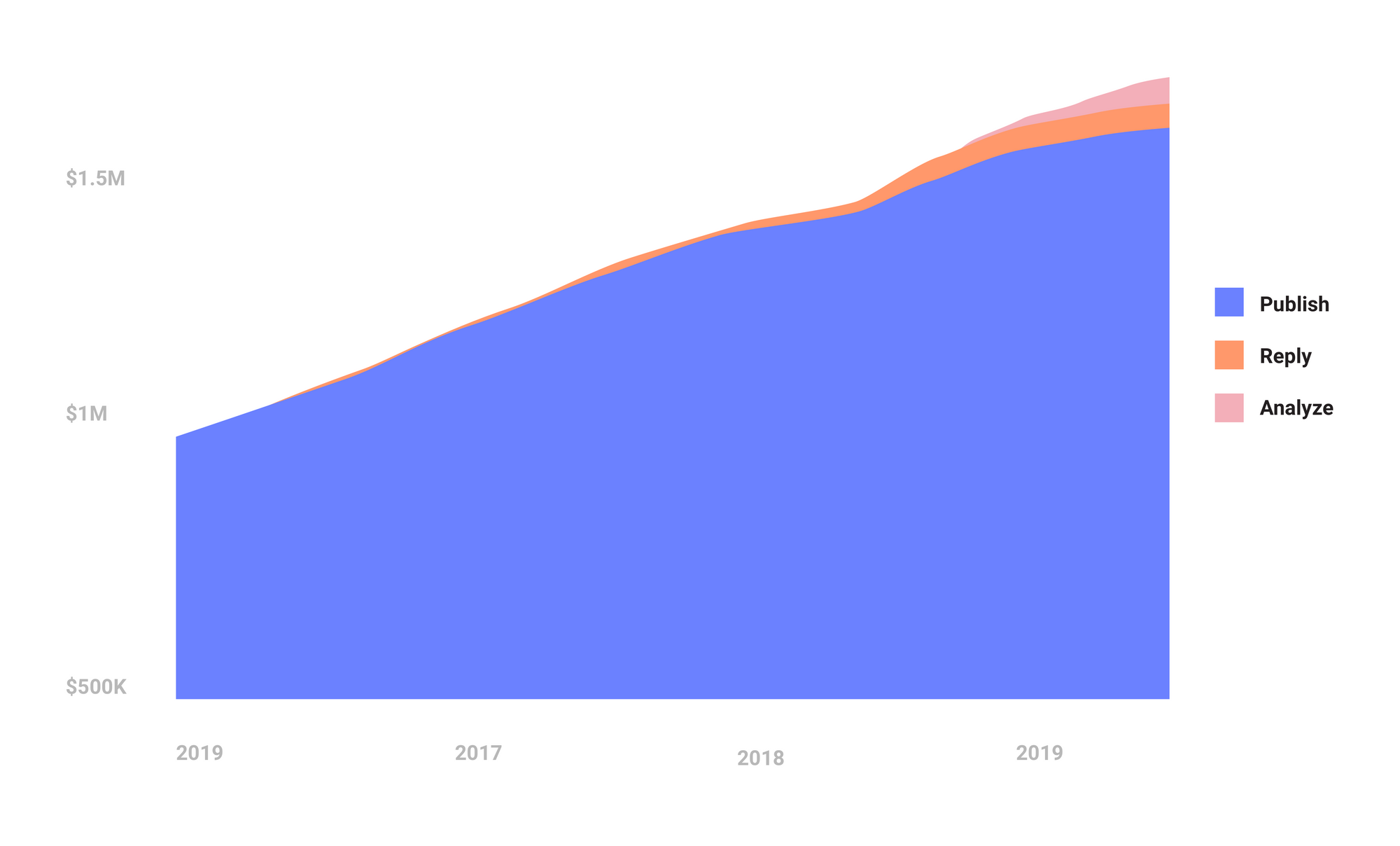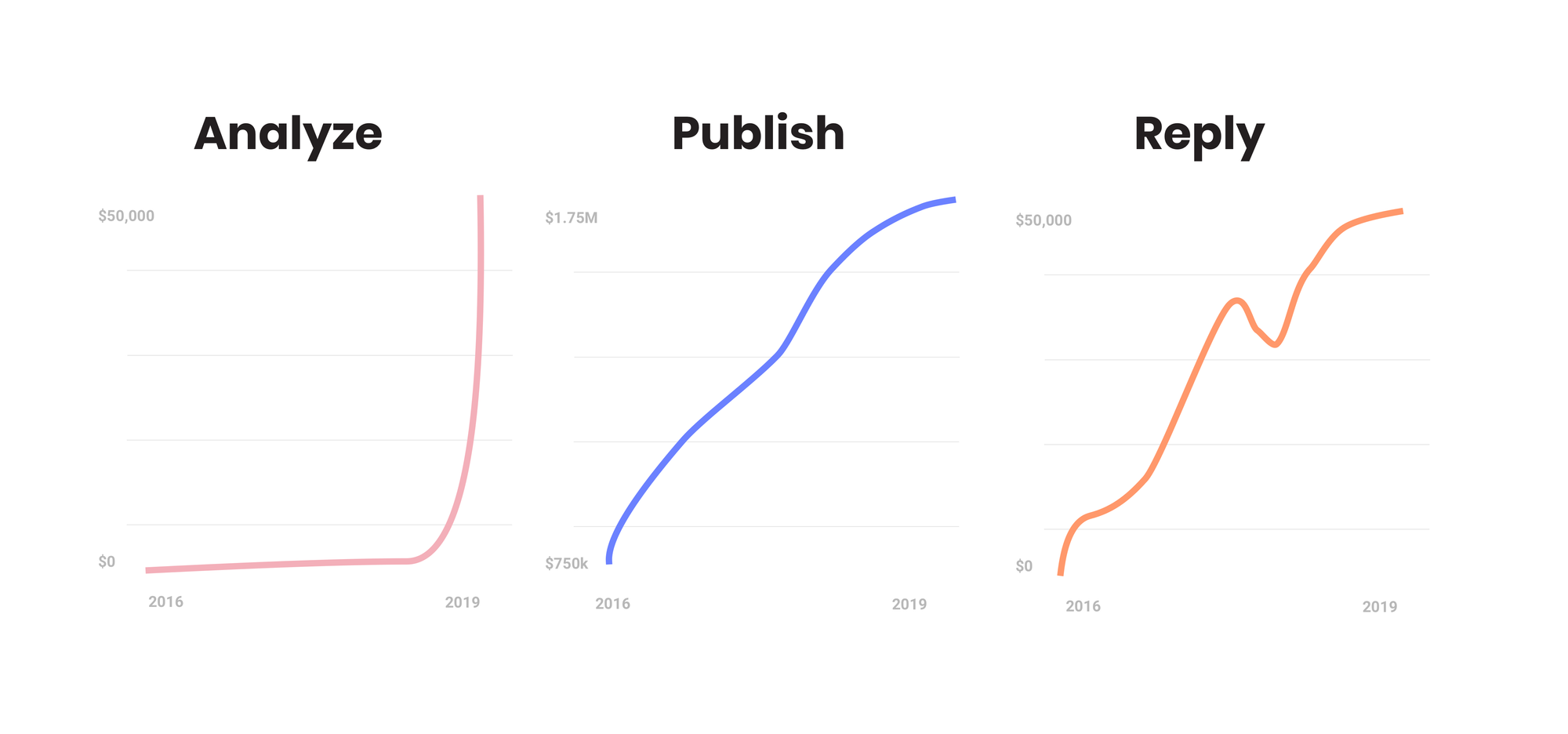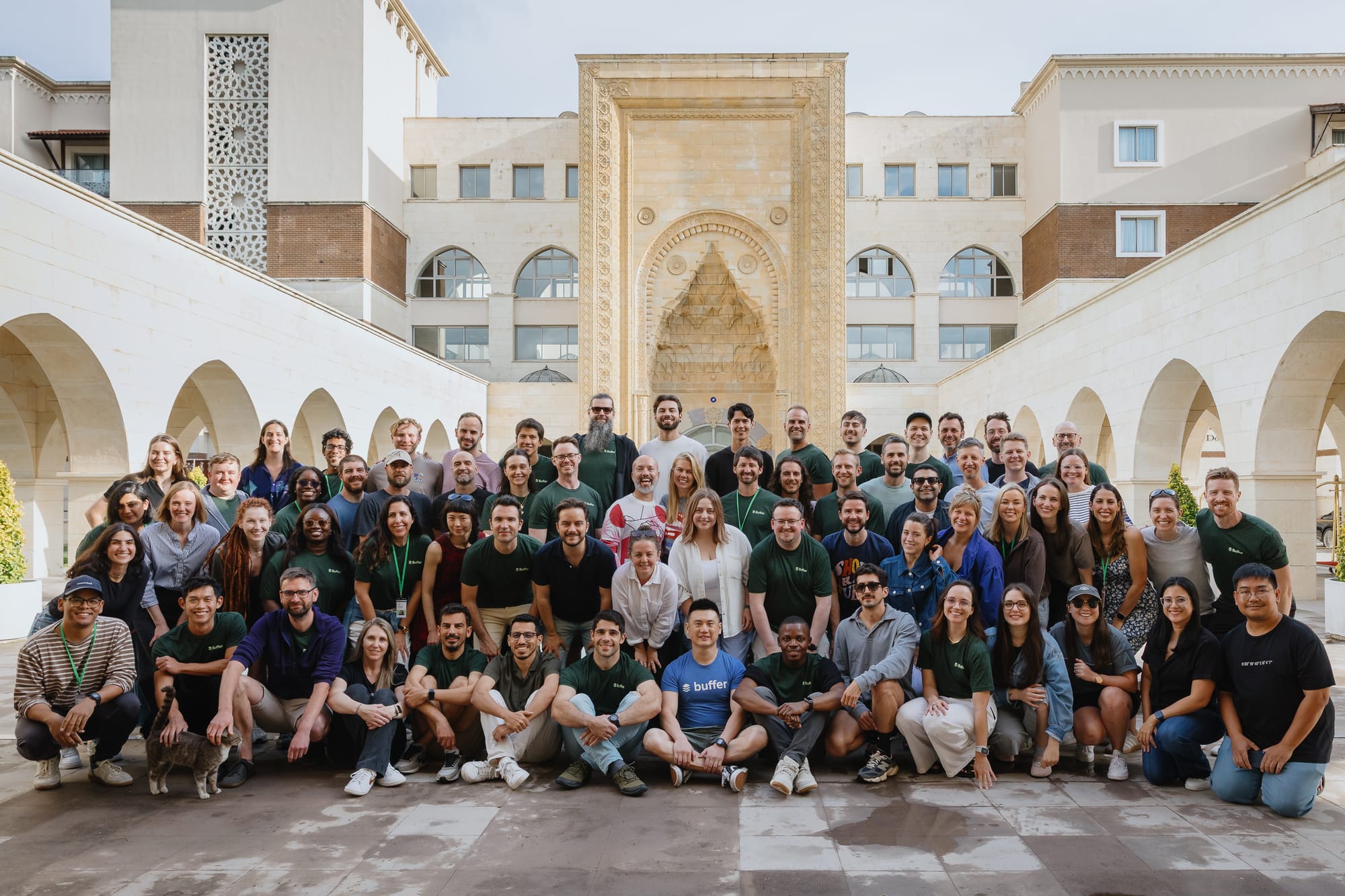
Almost exactly two years ago, I wrote this blog post about the next step in Buffer’s social media journey. I described Buffer’s multi-product vision of the future, which included Reply and Analyze. This idea was such a huge vision and change for us as a company, and it’s taken a few years to fulfill it. But now, looking back the vision in that blog post, it’s our current reality at Buffer.
We’re now a fundamentally different company. While we’ve traditionally been solely in the social media space, now that we have three products we are expanding into brand building.
Buffer is here to help the new and most innovative companies being started today build their brands.
Building a brand is one of the most important and one of the hardest things for growing an early company. We believe there’s a unique combination of circumstances and new technology that will bring about significant change in the creation of the best new brands of the next 10 years.
We believe that creating a brand today involves being an active participant in your community and your customers’ lives. You share interesting content to build connections and you actively and promptly respond in order to solidify those connections and create loyal champions for your product and company. You need a way to easily measure your progress and know what actions to take and adjustments to make to your strategy.
With this shift in our direction in mind, we publicly launched Analyze just this month, which brings us to three products: Publish, Reply and Analyze. This step has been monumental as we went from a company with just one product to having three fully built products. In the time since that original blog post, we’ve also rebuilt our codebase, refreshed the branding for the Buffer websites and products, and we’ve released several new features (like Shop Grid and Hashtag Manager) to continue to help our customers build their audiences and grow their brand on social media.
Back when I was writing that post, our multi-product vision was a big bet and investment for us, and we had no idea that it would work out. At the time, we moved around our engineering teams and resources so that our teammates were split evenly between the three products, even though one of those products didn’t exist yet and the other was making very little revenue. That left our most profitable and core product, Publish, to be run by only a third of our engineering team.
This structure shifted the company, but as you can see in this chart, it’s been paying off. And in part thanks to this strategy, we recently surpassed $20 Million in ARR, a significant milestone in the SaaS world.


While Reply was initially a very small part of Buffer’s overall revenue, it now makes up 2.9% of all of our revenue. Similarly, with Analyze, we had our first paying customer February 2018, and now we have over 1085 paying subscribers and Analyze makes up 2.8% of Buffer’s total revenue.
Buffer is also still fewer than 90 people, and our revenue per team member is especially meaningful in all of this. Currently, our revenue is $244,215 per teammate. Often in the tech industry, companies with $20m in revenue will have hundreds of employees and north of $30m in funding. Buffer, on the other hand, has had under $4 million in funding, and we even spent $3.3 million of accumulated profits to buy out a majority of our Series A investors. Given all of this, I’m very proud of how our team has achieved the $20 million milestone and managed to keep our freedom to do things the way we’d like to in the future as well.
Reflecting on our journey to get here, we started out very focused. The first version of Buffer helped people schedule to Twitter, and after that, we expanded out. It’s in the expanding out that it’s easy for companies to become less focused because you want to grow and customers start asking for more things. When this happens if you’re not careful, then your customers form your roadmap and take it in many different directions instead of one unified direction.
This happened to us at Buffer for a few years and I didn’t want it to happen again. As a result, we’ve also put a lot of energy into determining our target customer as a company this past year. Having a specific target customer has allowed our team to become so much more focused. It’s also allowed us to serve our community better. In a way, it’s a tool that we think will allow us to keep growing as a company and as a set of products. We’d rather try and be truly great for one type of customer and build a high-quality product for that customer, instead of becoming a company that expands in all directions and becomes lower quality all around. Our target customer is now helping us determine the vision for each of our products and Buffer as a whole.
During these times of change and larger shifts as a company, there likely is some disruption and change for our customers as well. We want to be mindful that some of these changes may feel frustrating and be a departure from past, better, experiences.
As we transform into a multi-product company, it becomes harder for customer service team members to provide great service. We are adjusting our processes and structure to excel in the new multi-product world and we’re making these changes in order to be able to reach and maintain high standards for product quality and customer service in the long term.
We’ve committed to the end result of this expansion being a more flexible platform and a great product and customer experience.
What’s next
We’ve done a lot of work behind-the-scenes with our infrastructure in the past few years. These projects haven’t been exciting for customers in the short term but set us up to iterate faster in the future. We’ve expressly set Buffer up so that we can continue to expand in the future.
While we don’t have a fourth product in the works right now, we’ve created a strong foundation for ourselves, and we’ll be keeping an eye on the things our target customers are looking at to determine the area we should grow into next.
The shift over the past few years has turned Buffer into a company with multiple products and as a result, multiple revenue streams. Having several revenue streams is setting us up to be a more sustainable, profitable, and long-term company. It means we can continue to be here for our customers and have the ability to make bets on what will be the most valuable to them. We’re excited to continue helping our customers build their audiences and grow their brands.
Thank you for being on this journey with us!
Try Buffer for free
180,000+ creators, small businesses, and marketers use Buffer to grow their audiences every month.
Related Articles

We've been hosting Retreats at Buffer for 12+ years. In this article, we've detailed everything we've learned from 14 Retreats.

I recently attended my first in-person, international conference. Here's what I learned.

What it was like to join a fully remote team like Buffer, and how going on the company retreat so early on helped shape my journey in ways I hadn’t imagined.
